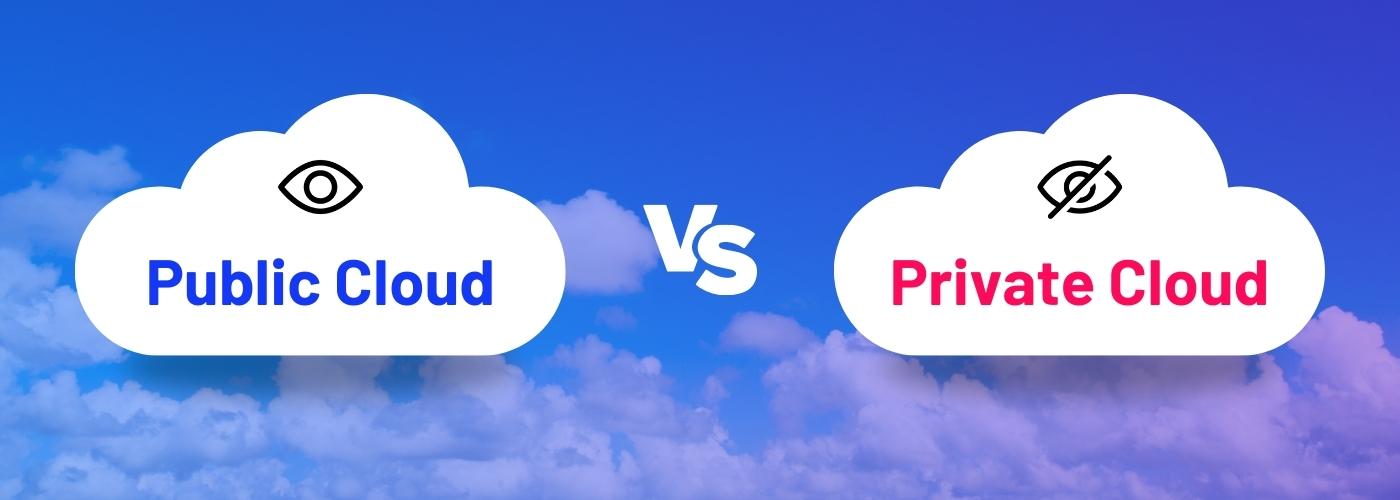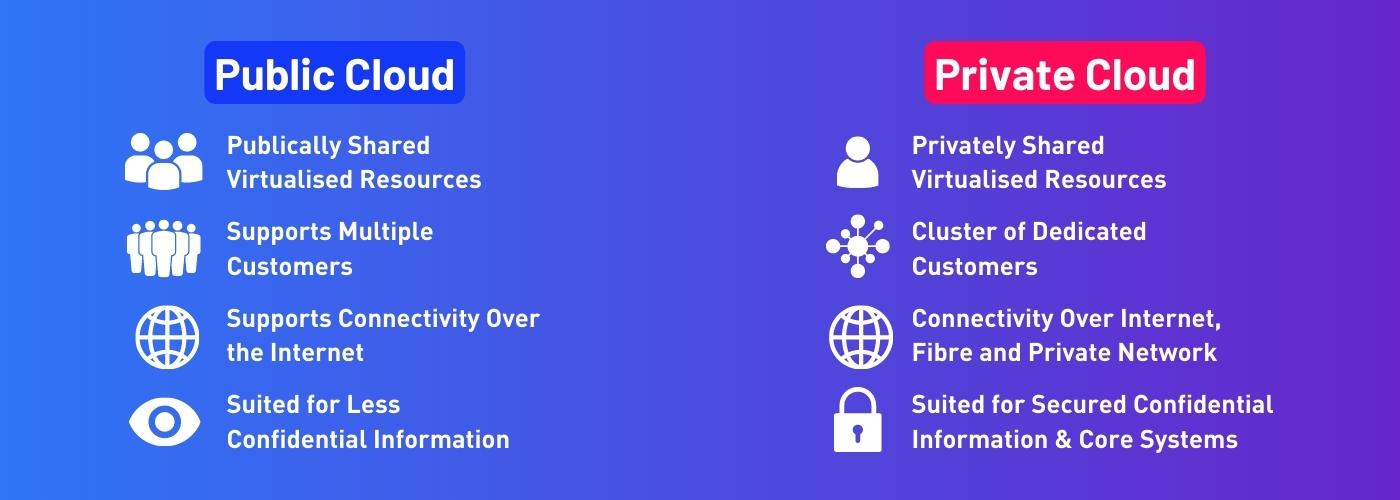In today’s rapidly evolving digital landscape, cloud computing has emerged as a game-changer for businesses and individuals in need of on-demand server resources. With its scalability, cost-efficiency, and flexibility, cloud computing has become a key part of modern IT. Two prominent models within cloud are Public Cloud and Private Cloud. Understanding the distinctions between these options is crucial in making informed decisions about cloud infrastructure.
Defining Public and Private Cloud
At its core, cloud computing involves the delivery of computing resources, including storage and processing power, over the internet. Public Cloud and Private Cloud are two options that differ primarily in their ownership, accessibility, and management.
Sharktech Public Cloud
Public Cloud services are offered on a multi-tenant platform. With this product, multiple clients enjoy resources on the clustered physical servers, with Sharktech handling the management and maintenance of the overall infrastructure. Public Cloud excels at scalability and on-demand provisioning, enabling businesses to quickly scale up or down as their needs change. This is particularly beneficial for startups and small to medium-sized enterprises that seek flexibility without the burden of managing complex IT infrastructure.
Sharktech Private Cloud
Private Cloud, on the other hand, involves the creation of dedicated cloud infrastructure solely for a single organization. This can be achieved by using dedicated resources within Sharktech’s datacenters. Unlike the shared nature of Public Cloud, Private Cloud offers enhanced security, customization, and control. It’s an attractive option for larger enterprises and industries with stringent regulatory requirements, such as healthcare and finance, where data privacy and compliance are paramount.
Key Differences
1. Ownership and Control: The primary distinction between Public and Private Clouds is ownership and control. With Public Cloud hardware infrastructure is managed by Sharktech, while Private Cloud resources are controlled largely by the organization using it. This gives Private Cloud complete authority over security settings, customization, and resource allocation.
2. Security and Compliance: Private Cloud generally provides a higher level of security, as it is an isolated environment with dedicated resources. This makes it suitable for industries with strict compliance regulations, where data must be kept within a specific geographic location or under specific security protocols.
3. Customization and Flexibility: Selecting Private Cloud offers greater customization, allowing clients to tailor their infrastructure to specific needs. This level of flexibility is essential for companies with unique software requirements or specialized IT workloads. Public Cloud is flexible in a different way – it is easy to turn up significant infrastructure on-the-fly since no hardware build-out is required.
4. Cost and Scalability: Public Cloud excels in terms of scalability and cost-effectiveness. Clients pay for resources on a pay-as-you-go (PAYG) basis, making it ideal for variable workloads. Private Cloud is more cost-intensive at launch due to the initial setup and maintenance costs, but it offers a predictable cost structure and can be more economical in the long run for organizations with stable workloads.
Choosing the Right Fit
The decision between Public and Private Cloud hinges on your organization’s specific requirements, priorities, and budget. Many organizations opt for a hybrid cloud application approach, which combines elements of both options. This allows clients to enjoy the benefits of Public Cloud scalability for non-sensitive workloads while keeping critical data and applications within a secure Private Cloud environment.
Public Cloud offers unparalleled scalability and cost-efficiency, making it an excellent choice for startups and businesses with fluctuating workloads. Private Cloud, on the other hand, prioritizes security, control, and customization, catering to industries with strict compliance needs and established enterprises.
Have more questions? Not a problem. Book a Free Consultation, and our Cloud experts will help you find the best option.






More to Read
WebsitePlanet.com about Cloud Repatriation
Learn more about Cloud Repatriation, its challenges, and how to solve them effectively
May
HostingAdvice.com about Sharktech’s Las Vegas Data Center
Check how Sharktech solved one of the biggest connectivity problems in Las Vegas.
May
HostingAdvice.com About CAP
See what experts at hosting advice say about simplifying the development and deployment of apps
Apr
Understanding Edge Computing
In the ever-evolving landscape of technology, one term that has been gaining significant attention is
Mar
HostingAdvice.com About Sharktech
Check what one of the leading hosting news portals says about Sharktech.
Feb
Content Delivery Network Basics
In the ever-evolving landscape of web technologies, Content Delivery Network (CDN) has become a crucial
Feb